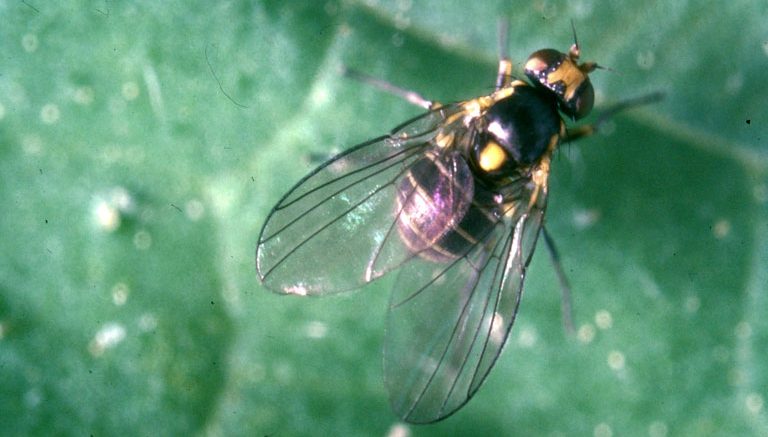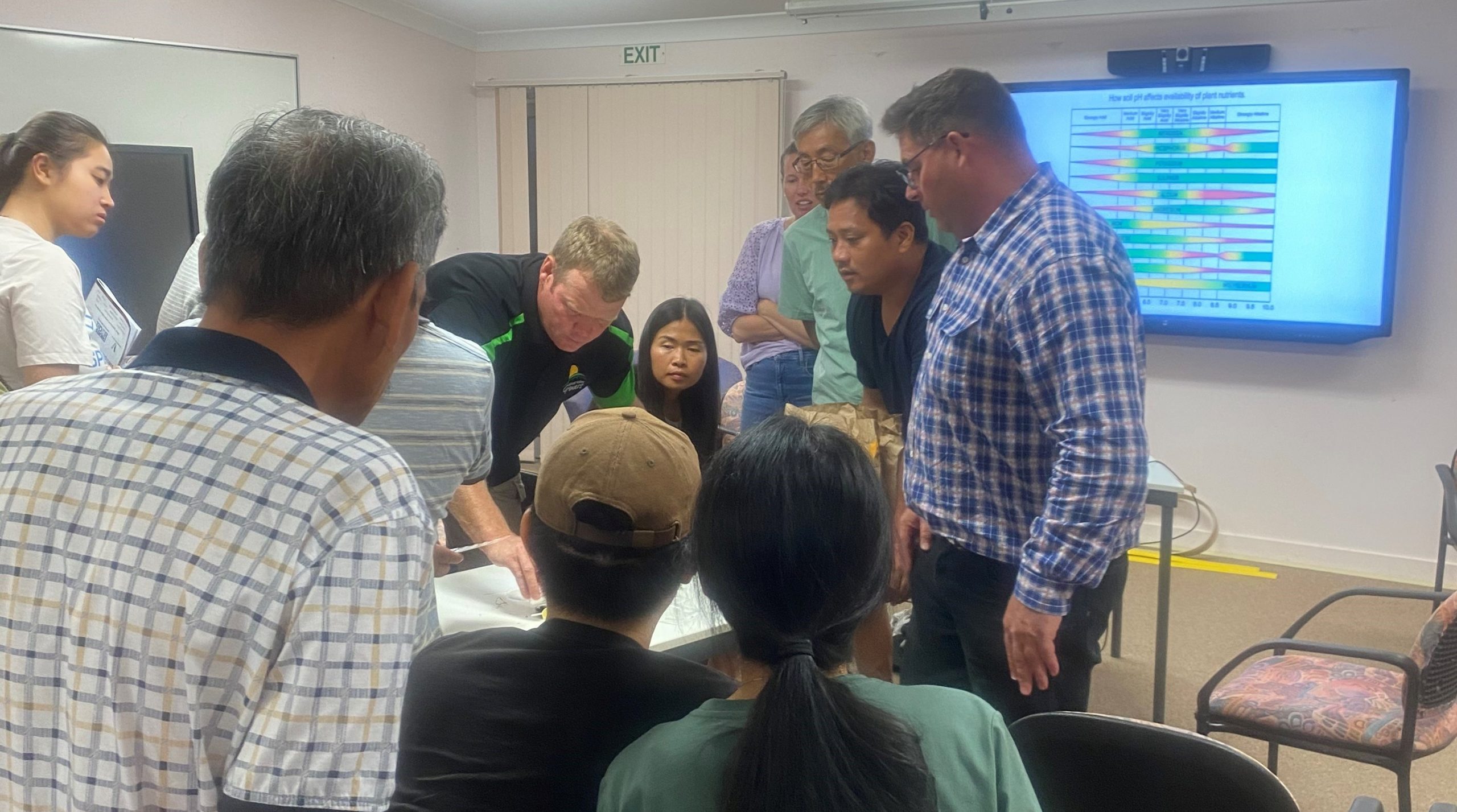
Key learnings from Australia’s serpentine leafminer incursion
28 February 2022
New VegNET Regional Development Officer for the Wide Bay-Burnett
28 February 2022In late 2021, VegNET Southern Queensland’s Languages Other Than English Program hosted a grower seminar at the Gatton Research Station. The seminar provided thought-provoking discussion on a range of issues from water and soil pH levels to Integrated Pest Management for soil health. Zara Hall reports.
A recent VegNET grower seminar in the Lockyer Valley focused on spray technology and integrated pest management for soil-borne pests.
Clinton McGrath from the Queensland Department of Agriculture and Fisheries conducted a session on optimising spray performance. For example, Velifer (Beauveria bassiana) – a relatively new pesticide for management of thrips and whitefly in protected cropping – shows best longevity when stored in the fridge.
As Velifer contains live biological components, it should not be frozen but stored between 4°C and 20°C. Storage at 4°C (i.e., in the fridge) provides a shelf life of two years while storage at 20°C (i.e., in air conditioning) provides a shelf life of half that, at 12 months.
In addition, Velifer – like some other biological products such as Bacillus sprays (Bts) – is killed by ultraviolet light, and is best sprayed when UV conditions are low (generally after 3pm in Queensland’s summer months).
Another aspect of Clinton’s presentation was a comparison of different farms’ water and soil parameters. In this hands-on session, growers tested water and soil pH from their properties using inexpensive pH kits available from the local hardware store.
The different pH levels ranged from about 6 (5.5-6 is generally considered ‘ideal’) through to 9.5 (very alkaline). This created a discussion about the impact that water quality can have on pesticide activity and nutrient availability. For example, strong alkalinity can affect availability of certain nutrients, including iron and zinc.
Dialling in from the west
Truyen Vo from the Western Australian Department of Primary Industries and Regional Development provided a virtual presentation. While most of us are now familiar with online meetings, part of that familiarity includes a begrudging acceptance of the frequent accompanying technology hiccups, slow regional internet speeds, and lag in connections associated with online meetings.
The newly installed technology at Gatton Research Station – through the Smart Farm program – was supported by fast internet and was encouragingly ‘plug and play’. Truyen was able to speak to growers via Zoom, and the conference facilities allowed good two-way dialogue between Truyen and producers.
Truyen led a discussion about Integrated Pest Management (IPM) for soil health, which included correct pest identification and use of resistant varieties.
Also discussed was the nematicide, Nimitz 480 EC (Fluensulfone), which represents an alternative mode of action and pesticide group (Group N-UN – Unknown) as part of a pesticide program for nematode management. For producers growing in soil-based medium, IPM remains an ongoing challenge. Local growers are expressing a desire to move away from nematicides for soil health, user safety and pesticide resistance management, purposes.
This seminar was run as part of VegNET Southern Queensland’s Languages Other Than English Program. For more information, please contact Lockyer Valley Growers Inc. on the details below.
Find out more
Please email ido@lockyervalleygrowers.com.au.
VegNET 3.0 is a strategic levy investment under the Hort Innovation Vegetable Fund.
This project has been funded by Hort Innovation using the vegetable research and development levy and contributions from the Australian Government.
Project Number: VG21000
Cover image: Seminar participants test pH levels of farm water and soil and discuss the impact that pH can have on spray quality and nutrient availability. Image courtesy of Olive Hood.

